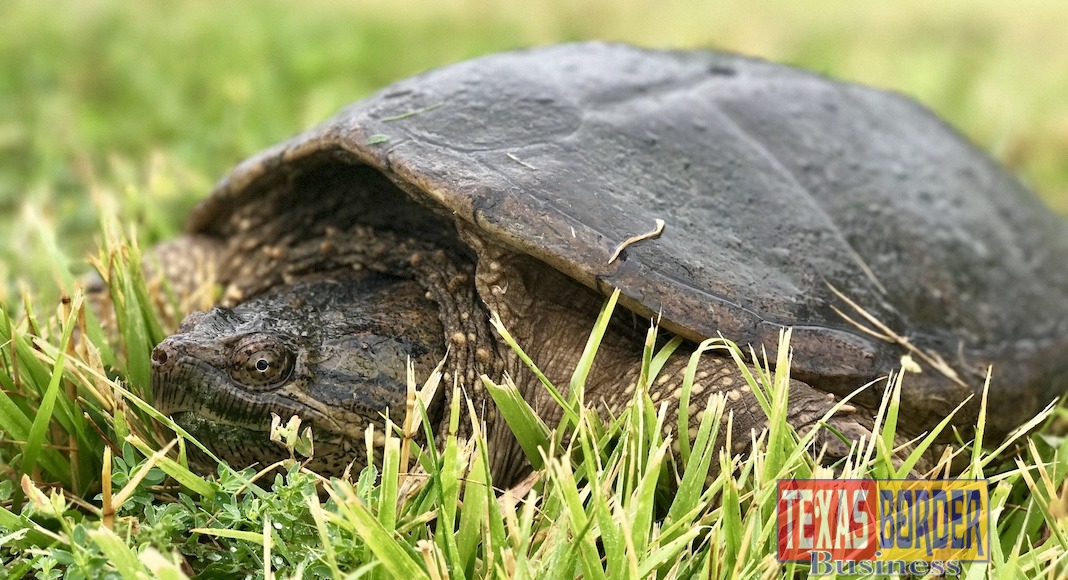
Texas Border Business
Austin, Texas – The Texas Parks and Wildlife Commission this week voted to prohibit the commercial collection of four species of freshwater turtles in Texas—the common snapping turtle, red-eared slider, smooth softshell and spiny softshell.
Previous state rules passed in 2007 prohibited commercial collection of wild freshwater turtles in Texas, but exempted these four species on private waters, meaning they could still be collected from private ponds. The new rules prohibit wild collection of the four turtles anywhere in Texas.
On Oct. 3, 2017, the Texas Parks and Wildlife Department received a petition for rulemaking saying that continued commercial harvest of the four turtle species is unsustainable. Scientific evidence bears this out, since localized turtle declines have been documented in parts of Texas, and research in recent years has shown these species are vulnerable to overharvest.
In 2008, the state agency funded a 5-year research investigation of freshwater turtle populations in Texas. This showed turtles are highly sensitive to commercial harvest, that even modest commercial harvest leads to long-term population declines, and that illegal commercial harvest of turtles continues.
The department received 1,184 public comments on the new rules since they were published as a proposal for comment in the Texas Register earlier this year. Of those comments, 98 percent supported the new rules to restrict harvest and protect the turtles.
Also, this year the department received a letter from eight concerned scientists located across the nation, a group with collective expertise in conservation biology, ecology, population dynamics, wildlife management and other areas relevant to turtle conservation. They said, “freshwater turtles cannot sustain any significant level of wild collection without suffering population declines,” and they asked the commission to “promptly ban for-profit exploitation of the state’s turtles.”
Under the new rules, recreational collection of wild turtles by children or individual citizens remains allowed, captive breeding and sale of lawfully obtained brood stock remains legal for permitted nongame dealers, and private property rights remain unchanged.
The rules will take effect this fall.














